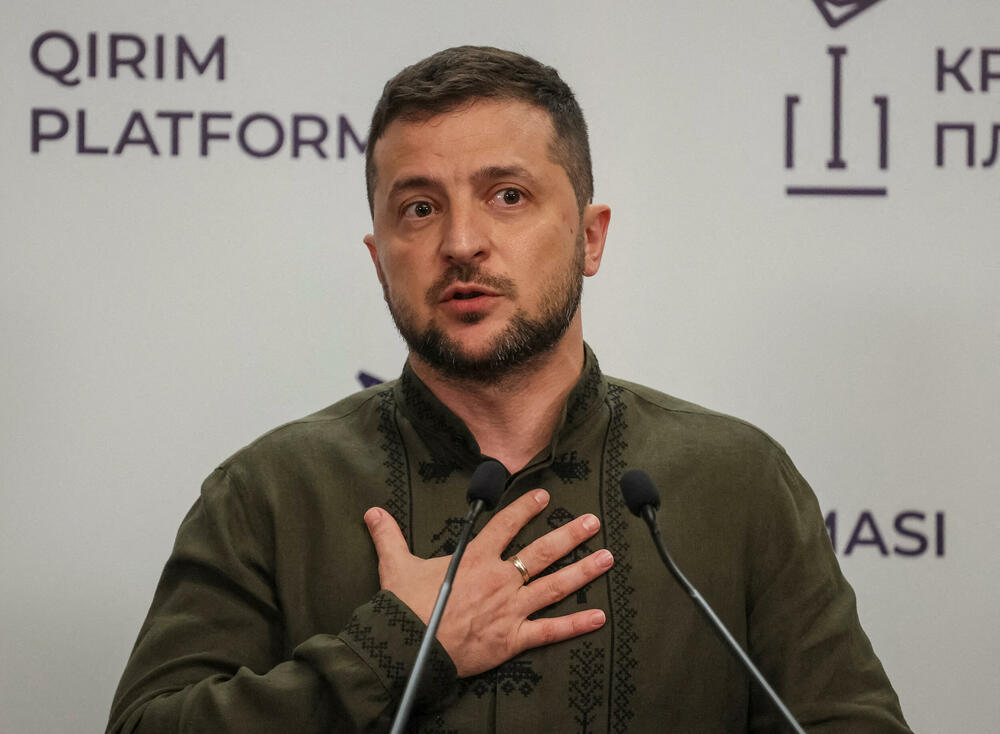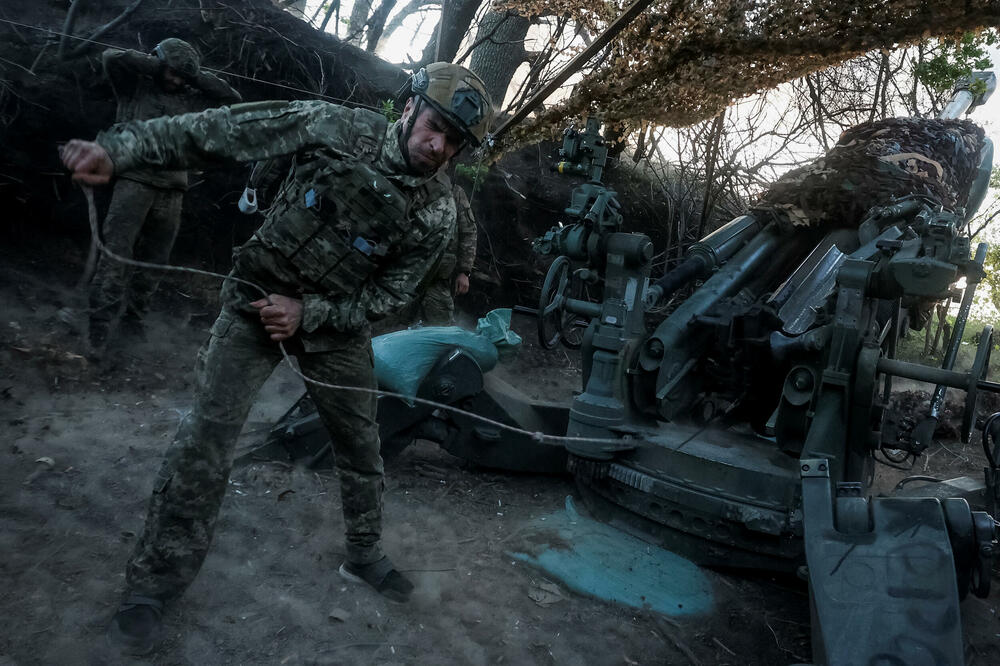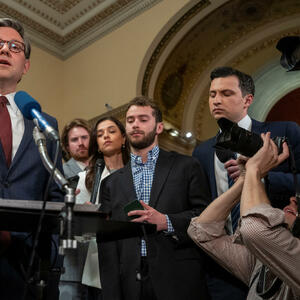President of Ukraine Volodymyr Zelensky expressed his gratitude to the House of Representatives of the US Congress for approving a new package of military aid to Ukraine of 61 billion dollars after several months of delay, writes James Votrehaus, correspondent of the BBC from Kyiv.
The text states that Zelenski said that the aid could save thousands of lives.

While it is not unusual for politicians to decide the future of a country, the very existence of a country dependent on a vote 5.000 miles away is as unusual as it sounds. For Ukraine, the six-month wait for this military package was as costly as it was frustrating. Less and less ammunition cost her life and territory. In this period of rare reinforcements for Kiev, this was a big deal - the arrival of American weapons would allow its besieged troops to do more than just hang on. But it is not a silver bullet, the text says.
So what will the package mean?
It is likely to include air defense systems, medium- and long-range missiles and artillery shells. The recent lack of them in Ukraine has led to Russian forces occupying hundreds more square kilometers of territory. Once aid arrives, Ukraine could potentially challenge Russia's air superiority, disrupt its supply lines and slow troop advances, the text said.
For Vitaly, the soldier Waterhouse encounters in downtown Kyiv, it's important to focus on the positive.
"Every cent counts. It's very necessary. We need everything. Every cartridge, every cent, every positive thought. We need everything," he said.
Waterhouse writes that when he was in the Donetsk region last month, soldiers said most of the artillery rumble was coming from the Russian side. Cities like Kostjantinovka and Kramatorsk were preparing for what might come. This aid could save those cities. That won't give Ukraine the immediate means to start liberating territory and force Russia to withdraw—but it does give it the ability to do so in the future. The consensus in Kiev and Washington is that without this American aid, Ukraine would lose.
"Better now than never"
On a miserable Sunday morning, the warmth of the Kyiv metro will always beat the wet streets above, the text says.
Waterhouse states that he meets Maximus there, who is pleased that American aid has finally been approved.
"I'm really happy about it. "I'm just a little disappointed that it took so long. In any case, better late than never, said Maksim, who is frustrated by the growing debate over whether Ukraine should negotiate peace with Russia at the expense of territory.
Vita holding her son's hand and pulling him out of the train says. "How else can Ukraine survive without it? It can't. We don't have such an army and weapons," she said.
She then becomes emotional.
"It's impossible. We really want help, for our children to survive, so we're waiting."
The past six months have not only revealed Russia's dominance, but also Europe's inability to provide the same level of support as the US.
"We have to think about the hypothetical possibility that the next US aid package might not go through," says Nikola Bieleskov, a research fellow at Ukraine's National Institute for Strategic Studies.
"It is therefore up to the UK and continental Europe to increase arms production to meet Ukraine's demands," he added.
As for a realistic goal for Kyiv this year, Bieleskov hopes that this US aid will help stabilize the front lines.
Democracy takes time
Despite the return of Western unity, the question for Ukraine has always been the time it takes for aid to arrive.
Russian President Vladimir Putin certainly doesn't have to negotiate so many political hurdles when it comes to military spending. Democratic delays are not exclusive to allies abroad - Ukraine has its own problems mobilizing enough people for its war effort. The controversial law on military conscription has just been adopted after months of discussion and amendments, the text says.
The challenge for President Zelenski now is to keep politics separate from fighting. They will be under pressure to make this latest American bid pay off, it concludes.
Bonus video:





